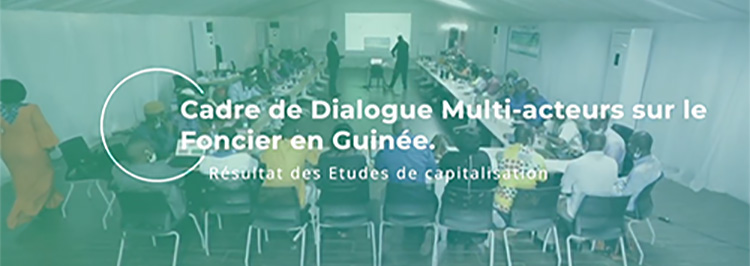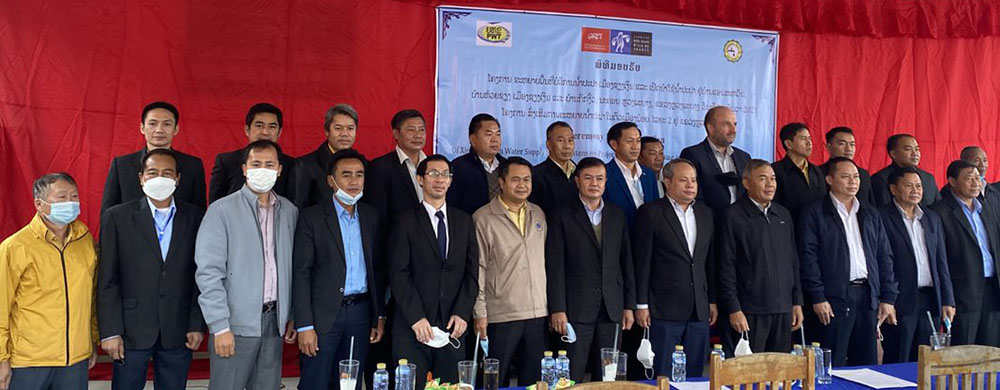Since 2019, the “Land tenure & development” Technical Committee (LTDTC) has been supporting strategic networks of land tenure stakeholders in 7 countries in West Africa and in Madagascar. The LTDTC aims to support these to inform reflections, influence debates and back the implementation of reforms. It also facilitates networking at regional level, so that they can benefit from the experience and expertise of other countries.
Chaired by the French Ministry of European and Foreign Affairs and Agence française de développement, and facilitated by GRET, the LTDTC is a group for discussion and reflections on land tenure policies in developing countries. With a view to supporting and strengthening Guinean civil society in terms of land tenure issues, a partnership was set up with ACORD-Guinea, an organisation conducting initiatives and supporting local stakeholders, in order to strengthen multi-stakeholder dialogue and promote more responsible land governance in the country.
Documenting realities in the field in order to inform reflection on land tenure reform
For several years now, Guinea has been engaged in various processes aimed at changing the current legal framework, which is based on the 1992 Code on private and State-owned land, and which is no longer in line with the challenges of securing land tenure in rural areas. The system for registration and issuing of individual land titles is at variance with local land management practices. The latter are governed by various authorities’ registers, and are based on customary practices and local administrative systems, with a view to regulating relationships between stakeholders (inheritance, transactions, conflict management). It seemed important therefore to better document practices, habits and customs, to outline actual practices in territories with a view to informing reflection on reforms to be undertaken.
An initial workshop organised in March 2019 by Acord-Guinea and the National Directorate of Rural Land at the Ministry of Agriculture made it possible to identify the main issues to be worked on and pointed to challenges related to empirical knowledge production. It mobilised approximately forty participants, members of the National platform for responsible governance of land in Guinea, and brought numerous institutional stakeholders together (Ministry of Agriculture, Ministry of the City, Ministry of Decentralisation, Ministry of Livestock Farming, etc.), decentralised technical services, experts, researchers, farmers’ organisations and civil society organisations.
The discussions that ensued highlighted the need to better document local practices in order to launch reflection on a reform of rural and agricultural land tenure, capitalise on local land management experiences, analyse legislative texts and other existing tools, and disseminate these in plain language in the country’s four main regions.
Capitalisation tools to inform reforms
These various studies were conducted between 2020 and 2021, enriched by discussions between local stakeholders at regular workshops organised regionally with the Committee’s members and experts. The final workshop to present capitalisations on experiences was held in January 2021 in Conakry. Land tenure stakeholders put forward recommendations and prospects for the current agricultural land tenure reform. Detailing the various issues around Guinean land, these capitalisation studies focus in particular on customary land uses, access to resources and shared governance among various occupants and users in territories.




